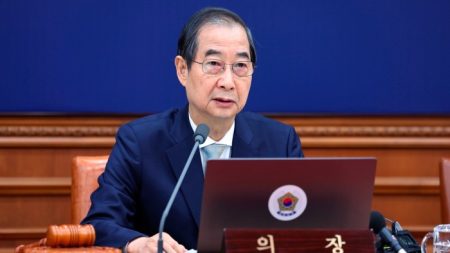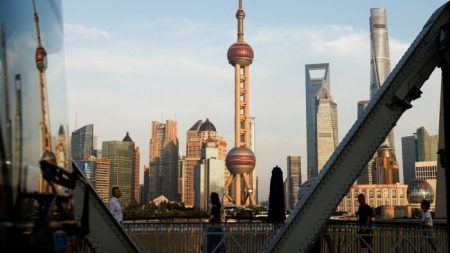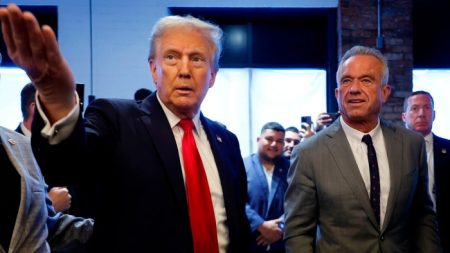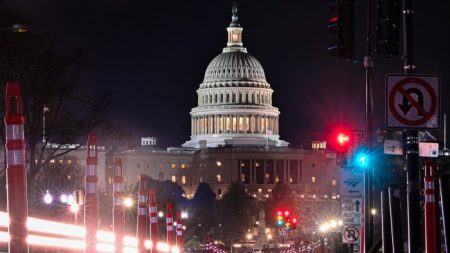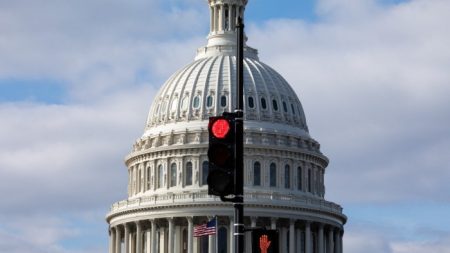Unlock the Editor’s Digest for free
Roula Khalaf, Editor of the FT, selects her favourite stories in this weekly newsletter.
During a rare interview with the Financial Times in February, Telegram’s chief executive Pavel Durov boasted of having a “perfect job, perfect life”.
Sitting in his gleaming office on the 35th floor of a Dubai skyscraper, the Russian-born billionaire explained the meaning behind his messaging app’s logo — a white paper aeroplane against a blue background. “For me, it symbolises a free entity that can move in three dimensions and is not restricted by boundaries or geographic constraints,” he said.
Six months later, Durov’s charmed life has been upended and his own existence as a free entity is at stake. The elusive entrepreneur is facing a possible prison sentence in France following his arrest at an airport on Saturday. He is accused of failing to tackle criminality on Telegram — including child pornography, drug peddling and fraud — and refusing to co-operate with police data requests. A French and Emirati citizen, he has been released from custody but barred from leaving the country.
For more than a decade, Durov has sold his vision of Telegram as an online safe haven that is technologically and ideologically unassailable. He has promoted himself as an anti-establishment tech genius whose libertarian streak was borne of his experience of oppression in his native Russia.
Both gambits were apparently successful. The app says it is nearing 1bn users while Durov is a nomadic multi-billionaire. But as his travails demonstrate, idealism at the expense of safety does not impress governments. His arrest could mark the end of an era in which tech leaders have enjoyed relatively little responsibility for the content on their platforms. Ambitious IPO plans may be thwarted.
How will Durov navigate his predicament? Should he stand his ground, he will be elevated by some as a free speech martyr. But he could face a lengthy jail sentence. “He’s always been put on a pedestal and might have felt invincible,” says Axel Neff, an estranged co-founder and former chief information officer of Telegram. That is no longer the case. “But if he changes his tune,” Neff adds, “then he’s not Pavel Durov”.
Born in St Petersburg in 1984 to a Ukrainian mother and Russian father, Durov built the country’s equivalent to Facebook, VKontakte, in his 20s — rising to fame as the “Mark Zuckerberg of Russia”. In his telling, he was forced to leave the company — and Russia itself — in 2014 after refusing demands from Moscow to share the data of Ukrainian opposition users.
A year earlier, Durov co-founded Telegram with his brother Nikolai. He claims the pair did so to communicate safely “because back then there was no secure messaging app”. Edward Snowden’s revelations of mass surveillance by US intelligence then inspired him to share the technology publicly, he told the FT. “I believe in the competition of ideas . . . Otherwise we can quickly degrade into authoritarianism,” he said.
Since then, the app has become a crucial communication tool for dissidents living in repressive regimes, such as Belarus and Iran. But it is also home to the darkest underbelly of the internet, including child sexual abuse material and terrorism.
Softly spoken and always wearing black, Durov has been unapologetic in the face of scrutiny, hitting back with accusations of his own. In an interview with right-wing pundit Tucker Carlson earlier this year, he claimed that the FBI had tried to hire one of his staffers to get access to user data in the app.
For all the self-mythologising, much of Durov’s life is still shrouded in mystery. Those who know him describe him as a visionary but also a master of spin. “He views himself as a champion of the people, but at the same time he cares about his self-image,” says Neff. “He’s a mix of vanity and nobility combined together.”
In his FT interview, Durov elaborated on his punishing health regime. After eight hours of tracked sleep, he starts the day “without exception” with 200 push-ups, 100 sit-ups and an ice bath. He does not drink, smoke, eat sugar or meat, and saves time for meditation.
In July he wrote on Telegram that he has more than 100 biological children through anonymous sperm donation across 12 countries, adding he plans to “open-source” his DNA so they could find each other more easily. His Instagram account is dominated by shirtless photos with enigmatic captions.
There are also darker episodes: he was investigated for a hit-and-run in Russia in 2013, which he denied, and attracted US regulatory scrutiny for his cryptocurrency endeavours. A case against Durov for violence against his children has been filed by his alleged former partner in Switzerland, according to documents seen by the FT.
Mystique has also created a vacuum for political speculation: namely that he still has secret ties to Russia. Recent reports in Russian independent media claim he has visited more than 50 times since he fled.
Durov dismissed reports of such links as “conspiracy theories” and “bias”. But he refused to take sides on the Russia-Ukraine war or comment on Russia’s President Vladimir Putin, saying “Let’s not go there”. His arrest has sparked a diplomatic firestorm between Paris and Moscow, with the latter calling for his release.
Durov’s neutrality has ultimately hurt his bid to distance himself from Russia, says Aleksandra Urman, a social media expert at the University of Zurich. “Authoritarian, or pro-democratic. He still chooses nothing.”
Read the full article here




